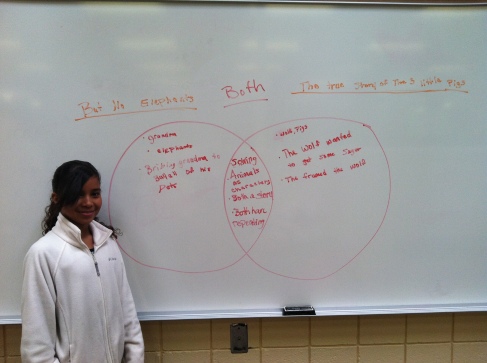Today was quite a revealing day with Angel in regards to getting to know her personality and priorities. When I arrived to the school, the class was outside having their recess, and I came out to find Angel and her friends putting on make-up behind the teachers back (make-up isn’t allowed in school). Also, this was the week that Angel was hanging out with girls that she typically didn’t enjoy hanging out with, who made fun of her, and always talked crap behind her back.
Later that day, when I was able to work one-on-one with Angel, I decided that I should talk to her about what happened at recess today. During lunch, a couple of boys noticed that she had put on make-up and complimented her, and based on her reactions, that was exactly what she was searching for by actually putting the make-up on. When I asked her about the make-up on the playground, Angel informed me that her boyfriend had broken up with her the week before and she wanted to make him feel jealous, so she asked her friends to make her look better than normal to make him realize what he lost. I then decided that I would talk to her about the impressions girls can give boys, and the difference between what is right and wrong in regards to boys (on a very basic, self-worth level). She seemed a little confused by my concern with what I did, went along with my mini-lesson for the day, and went along the same way at the end of this lesson as she did last week with the ven diagram. I hope that the discussion I had with her left an impression, and that the information I gave to her classroom instructor was not simply shrugged off.
